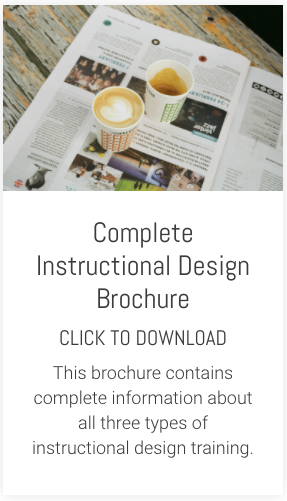Autumn is often our busiest period. The time of the year when people are most likely to decide to take some training or embark on a new project to develop a learning programme or course.
And naturally, starting a development project or a training course means thinking about objectives and outcomes. So this week, I wanted to share a personal story with you that vividly highlights the importance of getting this kind of stuff right.
It's a cold February day. I'm in a hotel in Bournemouth running a 5-day open (public) course for a fairly well-known training provider. It's morning break and I've locked myself in a cubicle in the gent's toilet.
Do I need to use the facilities? Actually, no. Am I having a nervous breakdown? Thankfully, not. So why the heck am I there? Easy. To be absolutely sure of having a delegate-free 20 minutes! (I did take a newspaper with me to avoid getting bored - this is a pre-smart phone era story, I'm sure you will have realised).
Before I go any further, I should point out, the delegates would have had no idea I was so desperate to escape them.
So how, you may well ask, did it get to this? Well we need to go back to Monday morning. Andrew to mission control: we have a problem. Unfortunately, mission control didn't give a stuff.
By break time on Monday morning it was quite clear half the delegates were entirely unsuited for the course. Being a smart bunch of people, they had realised this, too. Hence the call to mission control.
The solution seemed obvious to me. Refund of money or offer of a place on an alternative course at a later date. Problem solved. Mission control was having none of it. No refund. No transfer. Stick with the programme as advertised. Good luck…
As you can imagine, not a great start to any training week.
A couple of delegates left, vowing to fight the battle with mission control from back at the office. But most stayed.
Did I stick with the programme as advertised. Of course not, how could I. Did I have one of the worst weeks of my training life? Without doubt. Every spare minute was frantically spent devising exercises and activities, typing up worksheets, trying to think of ways to effectively run two courses in one. And this was when internet resources were nothing like as plentiful as now.
Every session was a struggle, trying hard to manage a demanding group of people with very disparate needs.
So you can see the attraction of the toilet cubicle by the time the course was almost done (we finished at lunchtime on the Friday).
This example, of course, was about a problem with the sales people. Not knowing (or properly understanding) the course objectives and the content, resulting in the wrong people to the wrong course.
But let's be honest, it's a problem that could just as easily be caused by poor audience and content analysis, unclear or unstated objectives or just not getting to the heart of why a piece of training is needed in the first place.
We're probably all guilty of seeing planning and analysis as a bit boring, something we want to get done as quickly as possible, so we get on to the interesting bits. But this experience seared into my little brain, how utterly important it is to get the early stages of the training development process right and that it is worth taking the time to do this.
If planning and analysis is one of your current challenges (or you have challenges in other aspects of developing training for the classroom or online mediums) then take a look at our instructional design training programme. Modular. Highly flexible. Continually updated. ITOL Accredited. Lots of options and choice.











